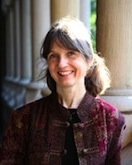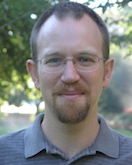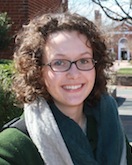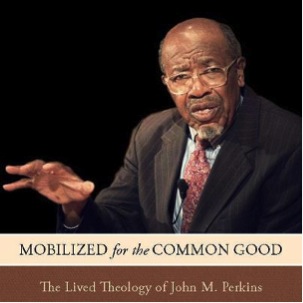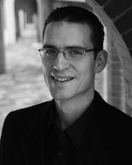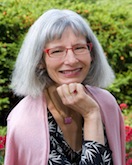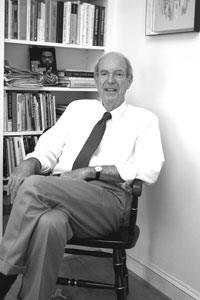 A year ago, February 28, 2012, the Reverend George B. Telford Jr. passed away surrounded by loved ones in Charlottesville. Many know George from his decades of leadership in the Presbyterian Church (U.S.A.) and in ecumenical circles, as well as his work with the Lilly initiative on Reformed Theology at Union Theological Seminary. He also became a kind of senior statesmen at the Project, gently and clearly reminding us in story and argument that the robust Protestantism of an earlier era in the North American Church has much to teach the post-liberal theological academy. I am deeply grateful for George’s courageous life, his indefatigable commitment to human flourishing and his Christian witness. He told us at a PLT conference that his greatest concern as a theologian-pastor “was how to build and sustain a blessed community of the people of God that may live with courage, and wisdom, and passion.” We miss George very much.
A year ago, February 28, 2012, the Reverend George B. Telford Jr. passed away surrounded by loved ones in Charlottesville. Many know George from his decades of leadership in the Presbyterian Church (U.S.A.) and in ecumenical circles, as well as his work with the Lilly initiative on Reformed Theology at Union Theological Seminary. He also became a kind of senior statesmen at the Project, gently and clearly reminding us in story and argument that the robust Protestantism of an earlier era in the North American Church has much to teach the post-liberal theological academy. I am deeply grateful for George’s courageous life, his indefatigable commitment to human flourishing and his Christian witness. He told us at a PLT conference that his greatest concern as a theologian-pastor “was how to build and sustain a blessed community of the people of God that may live with courage, and wisdom, and passion.” We miss George very much.
Please click this link for a transcript of his 2003 theological autobiography, presented at the PLT Congregation and City Group.
Here are sections from his obituary which appeared in the “Daily Progress” last year.
“George [Telford] was a pastor-theologian shaped by the lives, faithfulness and passion of four fine congregations. His primary conviction was that it was possible to build theologically strong, liturgically vibrant, socially sensitive congregations of God’s people, marked by a sense of community with one another in faithfulness and fidelity.
“He believed that the formation of mature and faithful congregations required lay theologians who were able to articulate Christian faith competently, persuasively and with a measure of passion in the varied context of contemporary life. He was convinced that the training of the laity to enable the churches to be communities of theological discourse, courage and compassion rested on the presence among them of pastors committed to be, as pastors, theologians-in-residence, disciplined in mind and heart for that task. All of his work in national church leadership has been shaped by these commitments.
“George was born in Charleston, West Virginia on November 30, 1933, the son of George B. and Cecelia Rupel Telford. He attended Presbyterian College, received his Masters of Divinity degree from Columbia Theological Seminary, and continued his studies at the Harvard University School of Arts and Sciences as a Woodrow Wilson Fellow. He did further graduate studies at the University of Geneva in association with the World Council of Churches. George began his ministry as Assistant Minister and Minister to Students at First Presbyterian Church of Auburn, Alabama.
“He served as pastor of four strong congregations alongside public universities: Westminster Presbyterian Church of Charlottesville, First Presbyterian Church of Tallahassee, Florida, First Presbyterian Church of Auburn, Alabama, and Blacksburg Presbyterian Church of Blacksburg, Virginia. In 1973, George became Director of the Division of Corporate and Social Mission of the Presbyterian Church U.S.
“He returned to national church leadership in 1987 as Director of the Theology and Worship Ministry Unit of the reunited Presbyterian Church (U.S.A). During this time George was a member of the Council on Theology and Culture, the General Assembly Task Force on a Theological Understanding of the Relationship Between Christians and Jews, Special General Assembly Council Task Force on the Spiritual Welfare of the Church, General Assembly Special Committee on the Consultation on Church Union. . . . He served on the Committee of Visitors for Vanderbilt Divinity School. He was the Presbyterian Church’s delegate to the Fifth World Conference on Faith and Order and to the Consultation on Church Union. . . . He was a member of the Presbyterian delegation in dialogue with the Episcopal Church on the matter of Reconciliation of Ministries and one of the regional leaders of the Presbyterian seminaries Advocate for Ministry program sponsored by the Lilly FoundationEndowment.
“He served as past chair and member of the Committee on Ecumenical Relations of the Presbyterian Church (U.S.A) and served most recently as a member of the Project on Lived Theology, University of Virginia. Prior to retirement, George served as Director of Advanced Studies and Associate Professor of Theology at Columbia Theological Seminary.
“After retiring in Charlottesville, he served as Director of the Institute for Reformed Theology at Union Theological Seminary and PSCE, Richmond, Virginia, and was instrumental in organizing, in Charlottesville, Clergy and Laity for Justice and Peace. He continued to serve on the Committee on Ecumenical Relations and the Presbyterian Episcopal Dialogue of the Presbyterian Church (USA) until his death. George served as Vice-President for Church and Society of the National Council of Churches when that body formed a panel to consult with religious and political leaders across the region, in Lebanon, Syria, Egypt, Jordan, Israel, and the Occupied Territories making a major contribution to the final policy statement of the National Council of Churches on the Middle East. He traveled extensively consulting with Arab, Jew and Christian leadership in the region.
“His life continues to be celebrated by his wife of 57 years, Sally, two sons and their families, John and Marguerite Telford and their daughters Katherine and Elizabeth of Leesburg, Virginia and George Telford III and Christine Marx and their daughters Rebecca and Emily Telford-Marx of Durham, North Carolina. “
 As part of the 2013 Virginia Seminar, Carlene Bauer will offer a writing workshop that is open to the public. Her most recent work, Frances and Bernard, is a narrative through letters exchanged between two writers on the rise who meet in an artists’ colony in 1957. Her characters are inspired by the lives of Flannery O’Connor and Robert Lowell. Read the New York Times review of her work here.
As part of the 2013 Virginia Seminar, Carlene Bauer will offer a writing workshop that is open to the public. Her most recent work, Frances and Bernard, is a narrative through letters exchanged between two writers on the rise who meet in an artists’ colony in 1957. Her characters are inspired by the lives of Flannery O’Connor and Robert Lowell. Read the New York Times review of her work here.
